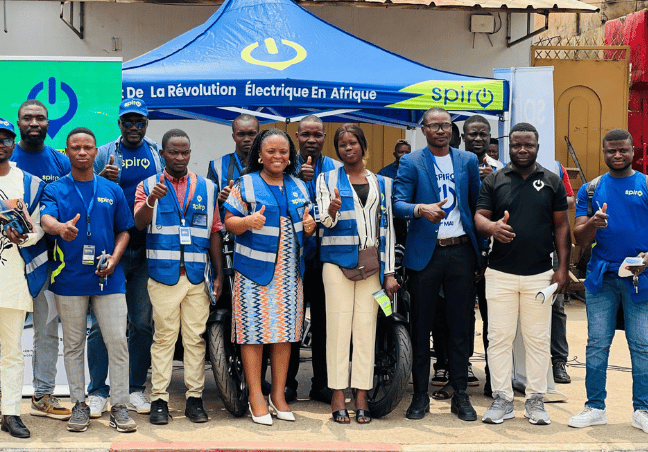- Mobility Rising
- Posts
- Here is why EV companies are partnering with universities
Here is why EV companies are partnering with universities
Dear subscriber, this is a prototype. Please help us with feedback and tips. Just press reply.
Electric motorcycle company Spiro has signed an MoU with Rwanda-based Mount Kigali University (MKU) to advance training, research and innovation in electric mobility. The collaboration will also see the installation of a battery-swap station at MKU, providing students and researchers with hands-on experience in EV adoption and sustainable transport solutions. |
There is a notable skills gap in the EV industry across Africa, and it's a meaningful barrier to the continent's green mobility ambitions. In the majority of African countries, skilled workers in basic trades like electrical, civil and mechanical work are limited.
To solve this, companies partner directly with universities. Last week, Kenya-based Jomo Kenyatta University of Agriculture and Technology (JKUAT) signed a deal with electric motorcycle company ARC Ride to enhance knowledge transfer, research and skills development in the sector.
Our take: Linking academia to the EV sector is an opportunity to remove a major bottleneck holding back EV companies in Africa… Read more (2 min)
Mobility companies expect to receive investment from Japan at an increased rate following the successful conclusion of the 9th Tokyo International Conference on African Development (TICAD). The conference saw Japan and various African nations enter into 300 cooperation agreements, including several geared towards enhancing investment in Africa’s EV sector. |
A number of African EV companies made the journey to Japan for the conference, where they pitched for investment. Japan’s private sector also used the TICAD business expo to showcase their investments in African electric mobility firms.
Kenya secured a $170 million loan from Japan, part of which will be used to support local EV manufacturing.
Our take: African countries should tap into the global financial markets for loans to build common-user EV assembly facilities… Read more (2 min)
Electric vehicle production capacity in Africa has risen by 22% over the past three months, increasing from 720,000 units annually to 880,420, though that includes completed as well as construction projects, an analysis by Mobility Rising shows. North Africa leads with 45% of the current capacity, driven by key production hubs in Morocco, Egypt, Algeria and Tunisia. |
Chinese OEMs are ramping up investments in Africa, particularly in the north, with over 80% of developments driven by Geely, SAIC, BAIC, GWM, and Chery. Non-Chinese players such as Stellantis, Renault and Hyundai also maintain a significant presence in the region.
North Africa will anchor EV car production, supplying regional and export markets. Motorcycle production is more widely spread.
Our take: Africa’s current EV numbers are still low, but rapid growth in production capacity signals substantial expansion… Read more (2 min)


Spiro’s Togo team winds up an EV drive campaign in Lome
Events
📅 Register for E-Mobility Policy in Africa Webinar (Aug 27)
📅 Book a slot at Auto Tech Expo in Egypt (Oct 24)
📅 Attend Africa Startup Festival in Kenya (Oct 30)
Jobs
👨🏭 Manage Aluminium Box Manufacturing at Balancell (South Africa)
👨🏻💻 Join BasiGo as a Technology Program Manager- Battery Systems (Kenya)
💻 Become an Associate Product manager - Software at Ampersand (Rwanda)
Various
🔋 Drivelectric e-mobility to conduct a free EV battery training
🤝🏻 Avatr signs distribution agreement in Egypt
📲 SHOVeBIKE introduces a cashless payment method
Seen on LinkedIn
Moses Nderitu, MD at BasiGo, says, “The real disruption to local assembly has not been EVs, but second-hand imports. If we’re serious about building a sustainable auto industry, we have to accept this reality and rethink the battlefield.”


